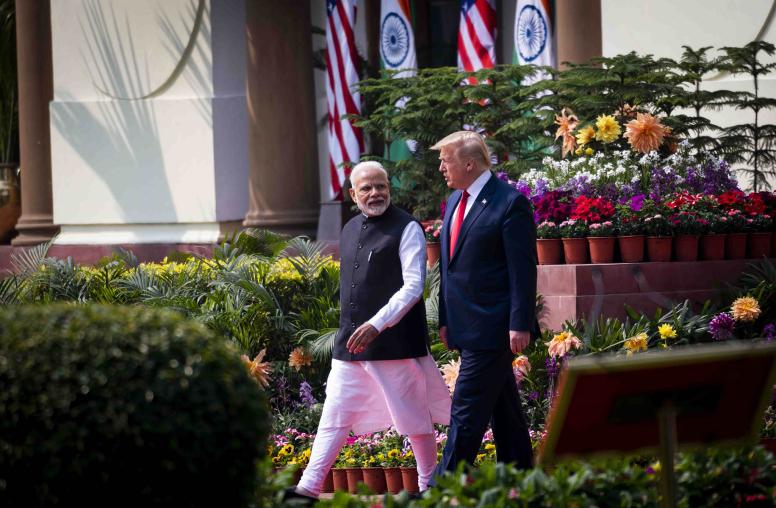From April 11 till May 19 voters are heading to the polls in India. Organizing an election with roughly one-million polling stations and an electorate of 900-million people is no small effort. Providing security presents a herculean task in the face of religious intolerance, rising tensions in Kashmir, and inter-party clashes in northeast India.

Across 29 states and seven union territories voters are heading to the polls in an election that will take over a month to complete. The voting will unfold in seven phases to ensure that enough election authorities and security forces are present to staff the polling stations.
Thus far voting has proceeded orderly in most states, but several violent incidents were reported, particularly in West Bengal and Kashmir. One person was killed and at least five were wounded when violence broke out between government forces and protesters in Kashmir. At a time of heightened tension between India and Pakistan, and as residents in Kashmir are engaging in a historic boycott, armed police and paramilitary units are guarding the polling stations in that state.
Rival activists clashed in Andhra Pradesh state, and a women was hit by a crude bomb that exploded near a polling station in West Bengal. An election official was killed by suspected insurgents in India’s remote northeast, and across several states voting machines were destroyed by angry voters.
Religious Intolerance and Disinformation
Considering the complexity and size of India’s 2019 general election—and some of the country’s long-standing conflicts—it is not surprising to see sporadic election violence. The rise of Hindu nationalism and disinformation campaigns present new challenges to maintaining election security and integrity.
The election comes amid rising intolerance of religious minorities, particularly in Rajasthan and Uttar Pradesh states, where militant Hindu groups have been targeting Muslims and lower-caste workers with considerable levels of impunity. According to Human Rights Watch, the so-called cow protection groups that conduct lynching attacks against minority communities have ties to Prime Minister Narendra Modi’s Bharatiya Janata Party, which advocates for a divisive Hindu-first agenda, setting aside traditional secularism.
Misinformation on social media has triggered some of the killings and may further deepen communal divisions in a country with millions of uneducated internet users. Several platforms have realized this danger and committed to a voluntary code of ethics. WhatsApp, Facebook and other providers have launched awareness campaigns, while using artificial intelligence and fact-checking programs. The creation of fact-checking organizations has helped to combat the rise in disinformation, but the Indian government has not yet introduced any legislation, citing concerns that heavy-handed proposals could infringe on freedom of expression.
The Election Commission of India is experienced in running complex elections, but few independent domestic and international observer missions are present to monitor possible irregularities or violent incidents. A robust observation presence could further legitimize the election process, and possibly deter violent incidents. Given the scope and duration of these elections, any observation effort would still be challenged to realize a large enough presence to help monitor or prevent violent incidents.



